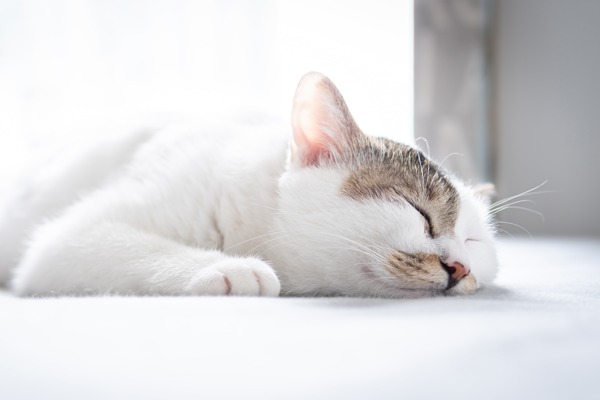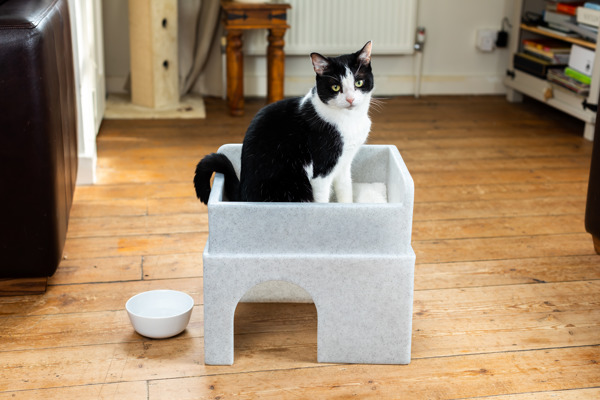Cats Protection has published a series of free essential cat care guides for Ukrainian refugees in collaboration with Veterinary Surgeon Bruce Fogle MBE.
To help Ukrainian families who have fled their country with their cats, we have created three cat care guides to help them care for their feline friends in a new environment.
The guides cover caring for your indoor cat, cat behaviour problems, and introducing cats to others, and are available in both Ukrainian and English to make them as accessible as possible.
Svitlana Panasko, from Cherkasy City in Ukraine, travelled over to the UK with her two cats, Boris and Simona, shortly after the war broke out.
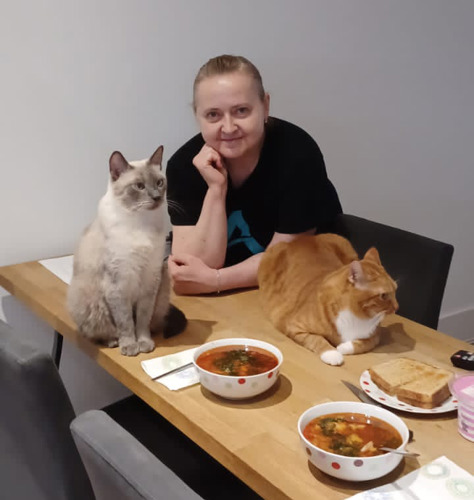 Svitlana with her cats Boris and Simona
Svitlana with her cats Boris and Simona
“The trip was very stressful, all of the flights in Ukraine were cancelled and it was too dangerous to travel by train because of the threat of damage to the railway,” said Svitlana.
“We also couldn’t get any cat carriers, so we had to make some ourselves out of laundry boxes and hope they would hold. We ended up making the journey to the Ukrainian-Polish borer by minibus, which took over 12 hours. It was very stressful for us and for the cats, who for this whole time were in uncomfortable self-made carriers.
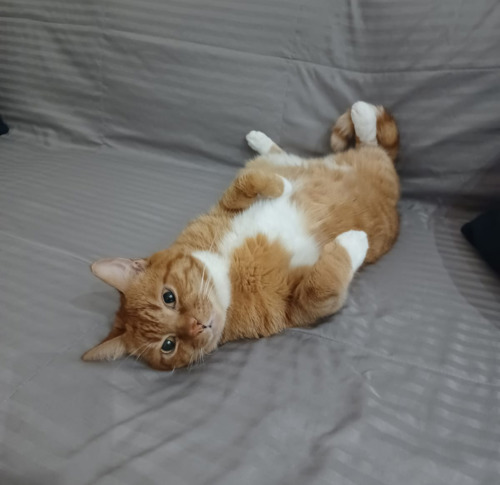
“Once at the border it took more time for us to get to Krakow by train, but here we were fortunately able to rest for a week while waiting for a permit to enter the UK.”
The next stage of Svitlana’s journey was made by bus through Lille in France, where she prepared to make the crossing to the UK.
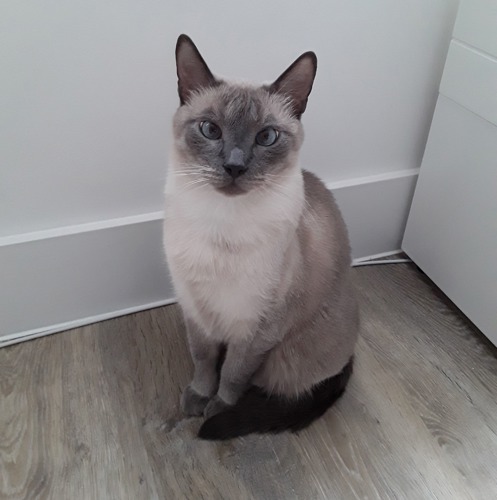
“The whole time my cats courageously endured the difficult journey with us, but before crossing to the UK they were seized for quarantine. Tears come to my eyes when I think about all they must have gone through. They have never been apart from us for such a long period, they must have thought they were abandoned forever.
“After two months of being in quarantine in the shelter, our cats were reunited with us. They did not forget us, even though we were very afraid of that, and were very happy to see us again after such a long time. We tried to do our best to make them feel comfortable and not too stressed in the new place, we prepared their usual dry and wet food, bowls, litter trays, toys and places for sleeping.”
Svitlana came to the UK on a Family Reunion Visa, moving into her brother’s flat in London along with another family friend.
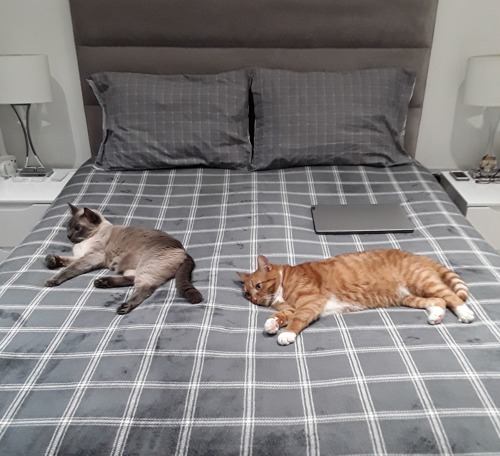
Veterinary surgeon Bruce Fogle MBE has been working closely with families like Svitlana’s to help them adjust their cats to new surroundings. After finding many families were struggling with language barriers when seeking veterinary advice for their cats, Bruce approached Cats Protection for help in creating essential cat care guides in Ukrainian.
“I think that Cats Protection’s dual translated leaflets will be very useful for those Ukrainian cat owners who have travelled to the UK and are learning how to settle their pets into their new environment,” Svitlana continued, “they will be particularly useful for those who do not understand English and are searching for specific information about how to care for indoor cats under the new conditions.”
 Bruce Fogle MBE
Bruce Fogle MBE
Bruce Fogle MBE said: "When I first met Ukrainian families who had travelled to the UK, I was impressed by what these good people were doing to keep their pets safe. They had travelled by bus and train, through five to nine different counties, with a cat carrier in one hand and a suitcase with cat food and a litter tray in the other. I am just as impressed by the British families I’ve met who are giving sanctuary to their unexpected guests and their pets.
“Cats Protection has been brilliant. Within a day of asking them for help, information in Ukrainian and English on caring for cats stressed by travel, quarantine, new people and new homes, was promised and work was underway. We felt providing a dual translation of the materials was the best way for us to a) help host families understand caring for new cat guests and b) to welcome refugee families by saying we understand what you’re going through, and we’re here to make you feel welcomed and safe.”
Thousands of Ukrainian refugees have settled with host families in the UK, many bringing their beloved cats with them. However, moving a cat into a new home can cause behavioural issues, which owners may need veterinary support to help them overcome.
Preparing both host families and Ukrainian pet owners for these behavioural changes will enable them to settle their cats calmly into their new home and to spot early signs of stress before they escalate into more complex behavioural issues.
Alison Richards, Cats Protection’s Head of Clinical Services, said: “Just like their owners, these cats have been through an unimaginable and horrifying experience. Their whole lives have been uprooted and they now find themselves thousands of miles from home in an unfamiliar setting. Cats are very sensitive animals, and they can find it very hard to adjust to sudden changes.
“We wanted to provide guidance to help reduce any stress that these cats may encounter, such as new environments, family members, pets and changes in their access to outside.
“We hope the leaflets will be a valuable resource for those settling in the UK and we offer an open door to anyone who needs additional guidance or advice. All UK vets working with Ukrainian families will also be able to access a copy of these leaflets to share.”
Alongside the translated guides, Cats Protection is currently working to establish a grant to provide financial support for Ukrainian refugee cat owners, has neutering vouchers readily available, and will provide other cat care resources where necessary.

